Dr. Meghan Anzelc (Data and Analytics)
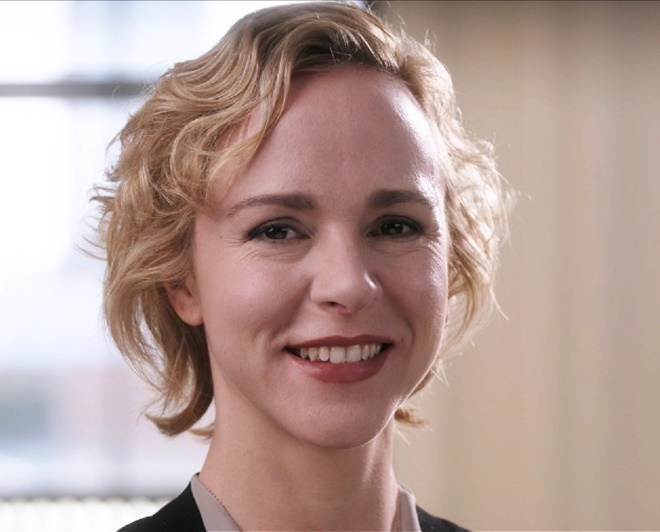 Meghan Anzelc, Ph.D. is the Chief Data & Analytics Officer at Three Arc Advisory. She has two decades of experience in data and analytics, having previously served as Global Head of Data & Analytics at Spencer Stuart. She has a decade of experience in financial services, most recently as the first Chief Analytics Officer at AXIS Capital. Dr. Anzelc’s global experience in data and AI have made her uniquely qualified to shape strategy at businesses adapting to new and emerging AI capabilities ethically while managing risk appropriately. She advises boards of directors and executive teams on AI, data, and digital transformation across strategy and operations, serves as an Advisor to startups, and previously served on the board and as chair of the Nom/Gov Committee of the Chicago Literacy Alliance. She holds a Master’s and PhD in Physics and Astronomy from Northwestern University and a Bachelor’s in Physics from Loyola University Chicago.
Meghan Anzelc, Ph.D. is the Chief Data & Analytics Officer at Three Arc Advisory. She has two decades of experience in data and analytics, having previously served as Global Head of Data & Analytics at Spencer Stuart. She has a decade of experience in financial services, most recently as the first Chief Analytics Officer at AXIS Capital. Dr. Anzelc’s global experience in data and AI have made her uniquely qualified to shape strategy at businesses adapting to new and emerging AI capabilities ethically while managing risk appropriately. She advises boards of directors and executive teams on AI, data, and digital transformation across strategy and operations, serves as an Advisor to startups, and previously served on the board and as chair of the Nom/Gov Committee of the Chicago Literacy Alliance. She holds a Master’s and PhD in Physics and Astronomy from Northwestern University and a Bachelor’s in Physics from Loyola University Chicago.Dr. Kate Kirby (APS)
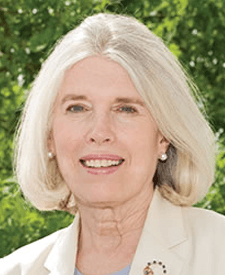 Kate Kirby was the Chief Executive Officer (CEO) at the American Physical Society from 2015 to 2021. Kirby earned her bachelor’s degree in chemistry and physics from Harvard/Radcliffe College and her Ph.D. from the University of Chicago. After a postdoctoral fellowship at the Harvard College Observatory she was appointed as Research Physicist at the Smithsonian Astrophysical Observatory and Lecturer in the Harvard University Department of Astronomy. From 1988 to 2001, she served as an Associate Director at the Harvard-Smithsonian Center for Astrophysics, heading the Atomic and Molecular Physics Division. From 2001 to 2007, she served as Director of the Institute for Theoretical Atomic, Molecular and Optical Physics (ITAMP) at Harvard and Smithsonian. From 2009 to early 2015, Kirby served as Executive Officer of the American Physical Society (APS). In February 2015, she became the first CEO of APS. Kirby’s research interests lie in theoretical atomic and molecular physics, particularly the calculation of atomic and molecular processes important in astrophysics and atmospheric physics. She is a Fellow of both the APS and the AAAS.
Kate Kirby was the Chief Executive Officer (CEO) at the American Physical Society from 2015 to 2021. Kirby earned her bachelor’s degree in chemistry and physics from Harvard/Radcliffe College and her Ph.D. from the University of Chicago. After a postdoctoral fellowship at the Harvard College Observatory she was appointed as Research Physicist at the Smithsonian Astrophysical Observatory and Lecturer in the Harvard University Department of Astronomy. From 1988 to 2001, she served as an Associate Director at the Harvard-Smithsonian Center for Astrophysics, heading the Atomic and Molecular Physics Division. From 2001 to 2007, she served as Director of the Institute for Theoretical Atomic, Molecular and Optical Physics (ITAMP) at Harvard and Smithsonian. From 2009 to early 2015, Kirby served as Executive Officer of the American Physical Society (APS). In February 2015, she became the first CEO of APS. Kirby’s research interests lie in theoretical atomic and molecular physics, particularly the calculation of atomic and molecular processes important in astrophysics and atmospheric physics. She is a Fellow of both the APS and the AAAS.Prof. Laura Greene (FSU)
 Laura H. Greene is both a notorious physicist and is a leading advocate for diversity in science and a champion for women in scientific and engineering fields. She is a: Pioneer in the fundamental understanding and predictive design of unconventional superconducting materials. Former President of the American Physical Society (2017). Vice President of the Executive Council of the International Union of Pure and Applied Physics. Member of the U.S. Department of State-supported COACh team, promoting success and impact of women scientists, particularly in developing countries. She is a member of U.S. National Academy of Sciences and a member of President Biden’s Council of Advisors on Science and Technology (PCAST), that advise the president on policy matters where the understanding of Science, Technology and Innovation is key.
Laura H. Greene is both a notorious physicist and is a leading advocate for diversity in science and a champion for women in scientific and engineering fields. She is a: Pioneer in the fundamental understanding and predictive design of unconventional superconducting materials. Former President of the American Physical Society (2017). Vice President of the Executive Council of the International Union of Pure and Applied Physics. Member of the U.S. Department of State-supported COACh team, promoting success and impact of women scientists, particularly in developing countries. She is a member of U.S. National Academy of Sciences and a member of President Biden’s Council of Advisors on Science and Technology (PCAST), that advise the president on policy matters where the understanding of Science, Technology and Innovation is key.Prof. Meg Urry (Yale)
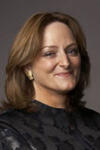 Meg Urry is the Israel Munson Professor of Physics and Astronomy, and Director of the Yale Center for Astronomy and Astrophysics; she previously served as Chair of the Physics Department at Yale from 2007 to 2013 and in the Presidential line of the American Astronomical Society 2013-2017. Professor Urry received her Ph.D. from the Johns Hopkins University and her B.S. in Physics and Mathematics from Tufts University. Her scientific research focuses on active galaxies, which host accreting supermassive black holes in their centers. She has published over 330 refereed research articles on supermassive black holes and galaxies, including one of the most highly cited review papers in astronomy. Prof. Urry is a Fellow of the American Academy of Arts and Sciences, the National Academy of Sciences, the American Association for the Advancement of Science, the American Astronomical Society, the American Physical Society, and American Women in Science; received an honorary doctorate from Tufts University; was awarded the American Astronomical Society’s Annie Jump Cannon and George van Biesbroeck prizes, and Yale University’s Howard R. Lamar award. Prior to moving to Yale in 2001, Prof. Urry was a senior astronomer at the Space Telescope Science Institute, which runs the Hubble Space Telescope for NASA. Professor Urry is also known for her efforts to increase the number of women and minorities in science, for which she won the 2015 Edward A. Bouchet Leadership Award from Yale University and the 2010 Women in Space Science Award from the Adler Planetarium. In 2002 she created the “flipped” classroom version of introductory Physics at Yale, and she is the founding Physics instructor for the Global Teaching Project, which provides advanced courses to promising high school students in under-served areas, beginning with a pilot program in rural Mississippi. She also writes about science for CNN.com.
Meg Urry is the Israel Munson Professor of Physics and Astronomy, and Director of the Yale Center for Astronomy and Astrophysics; she previously served as Chair of the Physics Department at Yale from 2007 to 2013 and in the Presidential line of the American Astronomical Society 2013-2017. Professor Urry received her Ph.D. from the Johns Hopkins University and her B.S. in Physics and Mathematics from Tufts University. Her scientific research focuses on active galaxies, which host accreting supermassive black holes in their centers. She has published over 330 refereed research articles on supermassive black holes and galaxies, including one of the most highly cited review papers in astronomy. Prof. Urry is a Fellow of the American Academy of Arts and Sciences, the National Academy of Sciences, the American Association for the Advancement of Science, the American Astronomical Society, the American Physical Society, and American Women in Science; received an honorary doctorate from Tufts University; was awarded the American Astronomical Society’s Annie Jump Cannon and George van Biesbroeck prizes, and Yale University’s Howard R. Lamar award. Prior to moving to Yale in 2001, Prof. Urry was a senior astronomer at the Space Telescope Science Institute, which runs the Hubble Space Telescope for NASA. Professor Urry is also known for her efforts to increase the number of women and minorities in science, for which she won the 2015 Edward A. Bouchet Leadership Award from Yale University and the 2010 Women in Space Science Award from the Adler Planetarium. In 2002 she created the “flipped” classroom version of introductory Physics at Yale, and she is the founding Physics instructor for the Global Teaching Project, which provides advanced courses to promising high school students in under-served areas, beginning with a pilot program in rural Mississippi. She also writes about science for CNN.com.Prof. Phiala Shanahan (MIT)
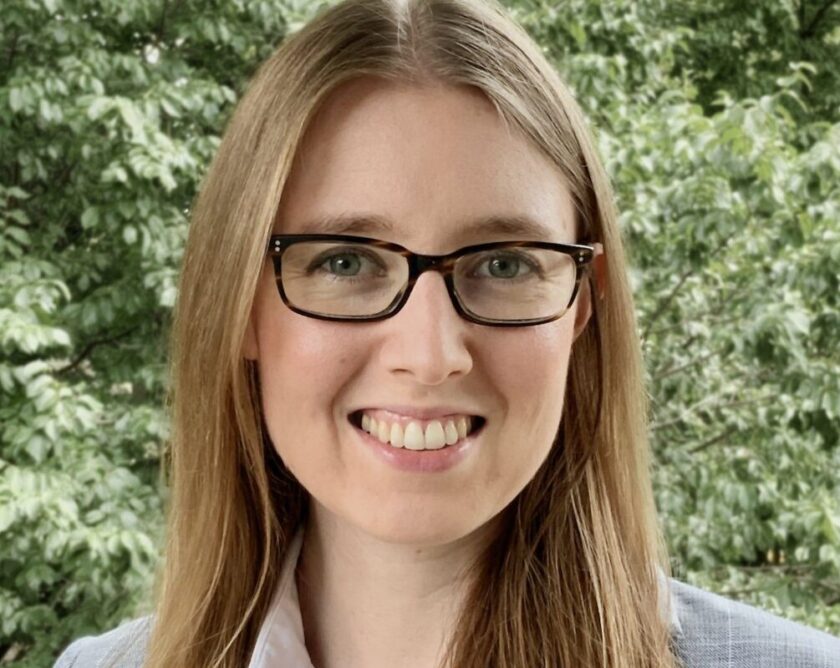 Phiala Shanahan grew up in Adelaide, Australia, and obtained her BSc from the University of Adelaide in 2012 and her PhD, also from the University of Adelaide, in 2015. Before joining the MIT physics faculty in July 2018, Prof. Shanahan was a Postdoctoral Associate at MIT from 2015-2017, and held a joint position as Assistant Professor at the College of William & Mary and Senior Staff Scientist at the Thomas Jefferson National Accelerator Facility from 2017-2018.
Phiala Shanahan grew up in Adelaide, Australia, and obtained her BSc from the University of Adelaide in 2012 and her PhD, also from the University of Adelaide, in 2015. Before joining the MIT physics faculty in July 2018, Prof. Shanahan was a Postdoctoral Associate at MIT from 2015-2017, and held a joint position as Assistant Professor at the College of William & Mary and Senior Staff Scientist at the Thomas Jefferson National Accelerator Facility from 2017-2018.Professor Shanahan’s research interests are focused around theoretical nuclear and particle physics. In particular, she works to understand the structure and interactions of hadrons and nuclei from the fundamental quark and gluon degrees of freedom of the Standard Model of particle physics.
Kathleen Holgerson (UConn)
 Kathleen earned her Master of Public Administration (MPA) degree from UConn and received the 2022 MPA Fellows Academic Excellence Award from the School of Public Policy. She also has a Bachelor of Arts degree in English from UConn. Kathleen has been the longtime director of the UConn Women’s Center at UConn in Storrs. She has served as faculty in Women’s, Gender, and Sexuality Studies and the Higher Education Student Affairs Program, as well as a First Year Experience instructor. She has engaged in many institution-wide activities related to UConn’s diversity, equity, inclusion, and belonging goals and in the service of members of our community that historically and continually experience underrepresentation, barriers to access, and disparate treatment at individual and institutional levels. Kathleen has been appointed as Interim Assistant Vice President in the Office for Diversity and Inclusion (ODI) since July 15, 2024. In this role, Kathleen has advanced diversity and inclusion strategic initiatives across UConn and UConn Health. She works closely with academic, research, and clinical care leaders to advance diversity, equity, and inclusion priorities for students, staff, faculty and patients.
Kathleen earned her Master of Public Administration (MPA) degree from UConn and received the 2022 MPA Fellows Academic Excellence Award from the School of Public Policy. She also has a Bachelor of Arts degree in English from UConn. Kathleen has been the longtime director of the UConn Women’s Center at UConn in Storrs. She has served as faculty in Women’s, Gender, and Sexuality Studies and the Higher Education Student Affairs Program, as well as a First Year Experience instructor. She has engaged in many institution-wide activities related to UConn’s diversity, equity, inclusion, and belonging goals and in the service of members of our community that historically and continually experience underrepresentation, barriers to access, and disparate treatment at individual and institutional levels. Kathleen has been appointed as Interim Assistant Vice President in the Office for Diversity and Inclusion (ODI) since July 15, 2024. In this role, Kathleen has advanced diversity and inclusion strategic initiatives across UConn and UConn Health. She works closely with academic, research, and clinical care leaders to advance diversity, equity, and inclusion priorities for students, staff, faculty and patients.Dr. Giulia Semeghini (Harvard)
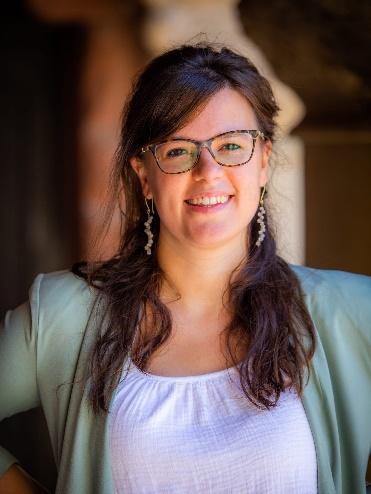 Giulia Semeghini did her PhD at LENS (European Laboratory for Non-linear Spectroscopy) in Florence, Italy, under the supervision of Giovanni Modugno, studying the effects of disorder on the transport of quantum particles. She continued to work at LENS as a postdoctoral fellow under the supervision of Marco Fattori, investigating the formation of a novel quantum phase in ultracold atoms, the so-called quantum droplet. In 2018, Giulia joined Harvard as a postdoctoral fellow in Misha Lukin’s group to work on neutral atom arrays for quantum information. Building upon this experience, she is now leading her own lab at Harvard and plans to explore new scientific avenues of using a two-species atom array for quantum science.
Giulia Semeghini did her PhD at LENS (European Laboratory for Non-linear Spectroscopy) in Florence, Italy, under the supervision of Giovanni Modugno, studying the effects of disorder on the transport of quantum particles. She continued to work at LENS as a postdoctoral fellow under the supervision of Marco Fattori, investigating the formation of a novel quantum phase in ultracold atoms, the so-called quantum droplet. In 2018, Giulia joined Harvard as a postdoctoral fellow in Misha Lukin’s group to work on neutral atom arrays for quantum information. Building upon this experience, she is now leading her own lab at Harvard and plans to explore new scientific avenues of using a two-species atom array for quantum science.Dr. Rachael Gabriel (UCONN)
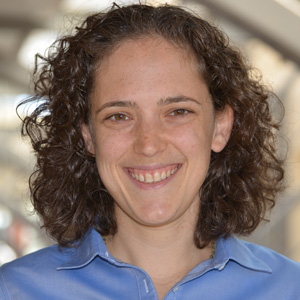 Rachael Gabriel is Professor of Literacy Education at the University of Connecticut. She is author of more than fifty refereed articles, and author or editor of seven books for literacy teachers, leaders and education researchers. Rachael currently teaches courses for educators and doctoral students pursuing specialization in literacy, and is Editor in Chief of The Reading Teacher. A former teacher and reading specialist, Rachael’s research is focused on: literacy instruction, leadership and intervention, as well as policies related to teacher development and evaluation. Her current projects investigate: how educators and school leaders build collective capacity, state literacy policies and discipline-specific literacy instruction.
Rachael Gabriel is Professor of Literacy Education at the University of Connecticut. She is author of more than fifty refereed articles, and author or editor of seven books for literacy teachers, leaders and education researchers. Rachael currently teaches courses for educators and doctoral students pursuing specialization in literacy, and is Editor in Chief of The Reading Teacher. A former teacher and reading specialist, Rachael’s research is focused on: literacy instruction, leadership and intervention, as well as policies related to teacher development and evaluation. Her current projects investigate: how educators and school leaders build collective capacity, state literacy policies and discipline-specific literacy instruction.Dr. Stacey L. Hanlon (UConn)
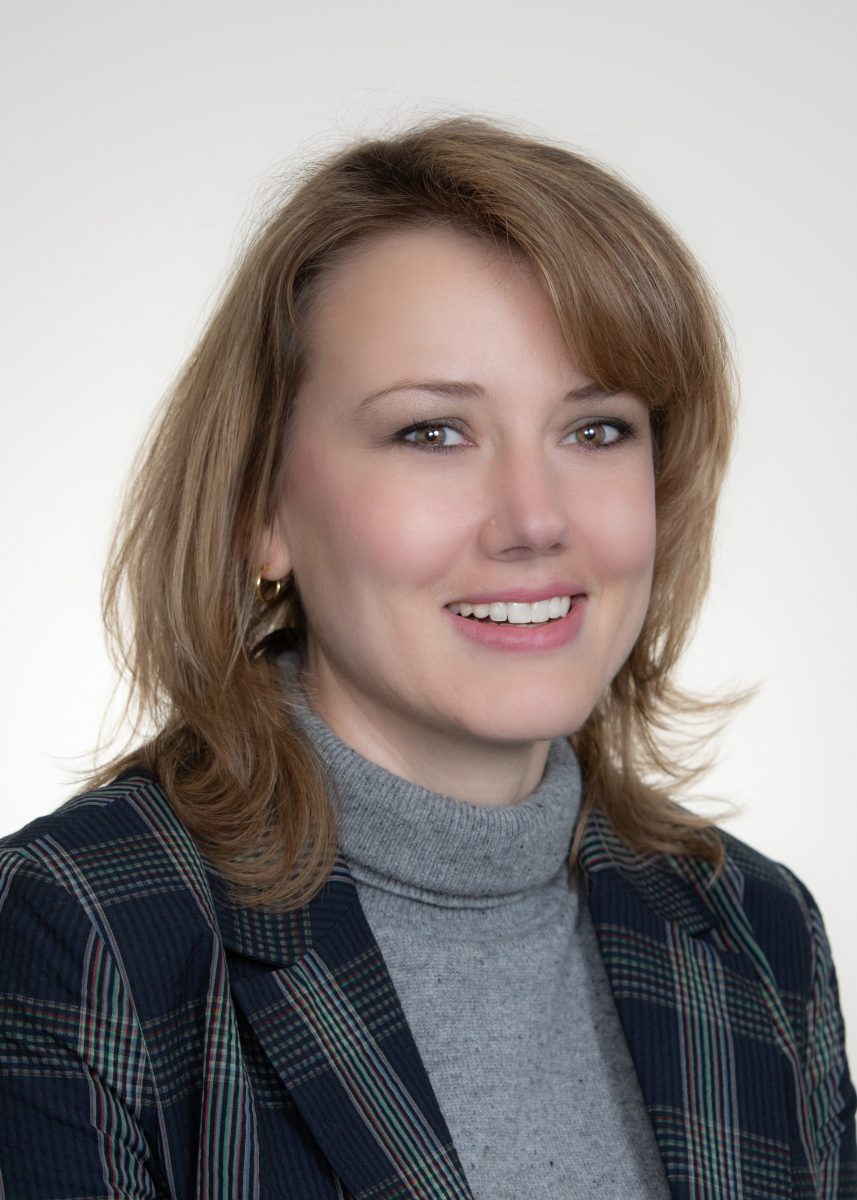 After graduating from Texas A&M University with a B.S. in Biology, Dr. Hanlon attended the University of California, San Francisco to obtain a Ph.D. in Biochemistry and Molecular Biology. Her extensive molecular training in league with her interests in chromosome biology led Dr. Hanlon to pursue the unknown biology of B chromosomes in the fruit fly Drosophila melanogaster during her postdoctoral studies at the Stowers Institute for Medical Research. Dr. Hanlon’s work has launched the field of B chromosome biology in D. melanogaster and exposed exciting new directions about how these chromosomes move, form, and evolve. The Hanlon Lab will continue to explore the B chromosomes using both classic genetic and modern genomic approaches.
After graduating from Texas A&M University with a B.S. in Biology, Dr. Hanlon attended the University of California, San Francisco to obtain a Ph.D. in Biochemistry and Molecular Biology. Her extensive molecular training in league with her interests in chromosome biology led Dr. Hanlon to pursue the unknown biology of B chromosomes in the fruit fly Drosophila melanogaster during her postdoctoral studies at the Stowers Institute for Medical Research. Dr. Hanlon’s work has launched the field of B chromosome biology in D. melanogaster and exposed exciting new directions about how these chromosomes move, form, and evolve. The Hanlon Lab will continue to explore the B chromosomes using both classic genetic and modern genomic approaches.Dr. Crystal Bailey (APS) (bailey@aps.org)
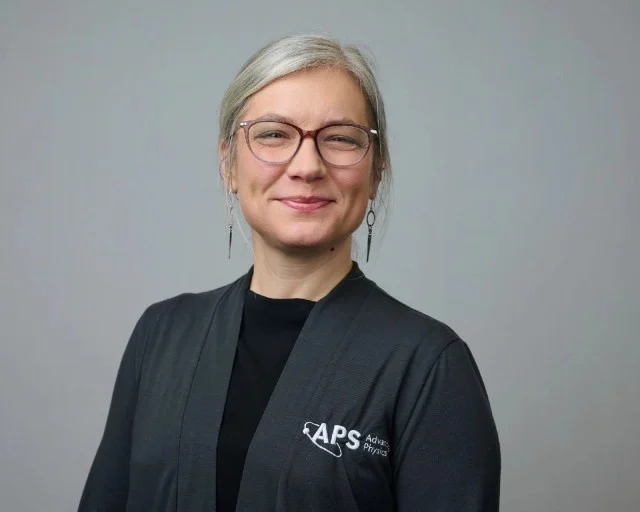 Dr. Crystal Bailey is the Head of Career Programs and Director of the Conferences for Undergraduate Women in Physics (CUWiP) at the American Physical Society (APS) in College Park, MD. Crystal works on several projects which are geared towards marketing physics and physics career information to high school students, undergraduates, graduate students and physics professionals. Some of her principal projects include the career events and workshops at APS annual and division meetings, the APS Job Board and Job Fairs, the APS Careers Website, and the recently launched Success in Industry Careers Webinar series. Through efforts like the APS PIPELINE project, Crystal also works to promote the integration of meaningful workforce development into undergraduate physics education, and to broaden awareness of, and interest in, non-academic physics careers.
Dr. Crystal Bailey is the Head of Career Programs and Director of the Conferences for Undergraduate Women in Physics (CUWiP) at the American Physical Society (APS) in College Park, MD. Crystal works on several projects which are geared towards marketing physics and physics career information to high school students, undergraduates, graduate students and physics professionals. Some of her principal projects include the career events and workshops at APS annual and division meetings, the APS Job Board and Job Fairs, the APS Careers Website, and the recently launched Success in Industry Careers Webinar series. Through efforts like the APS PIPELINE project, Crystal also works to promote the integration of meaningful workforce development into undergraduate physics education, and to broaden awareness of, and interest in, non-academic physics careers.Before coming to the APS, Dr. Bailey did research in nuclear physics at Indiana University, Bloomington in the area of few-body systems. In 2008 she received the Konopinski Award for Outstanding Graduate Teaching from the IU Physics Department. She graduated with her PhD from IU in 2009.
Prof. Priya Natarajan (Yale)
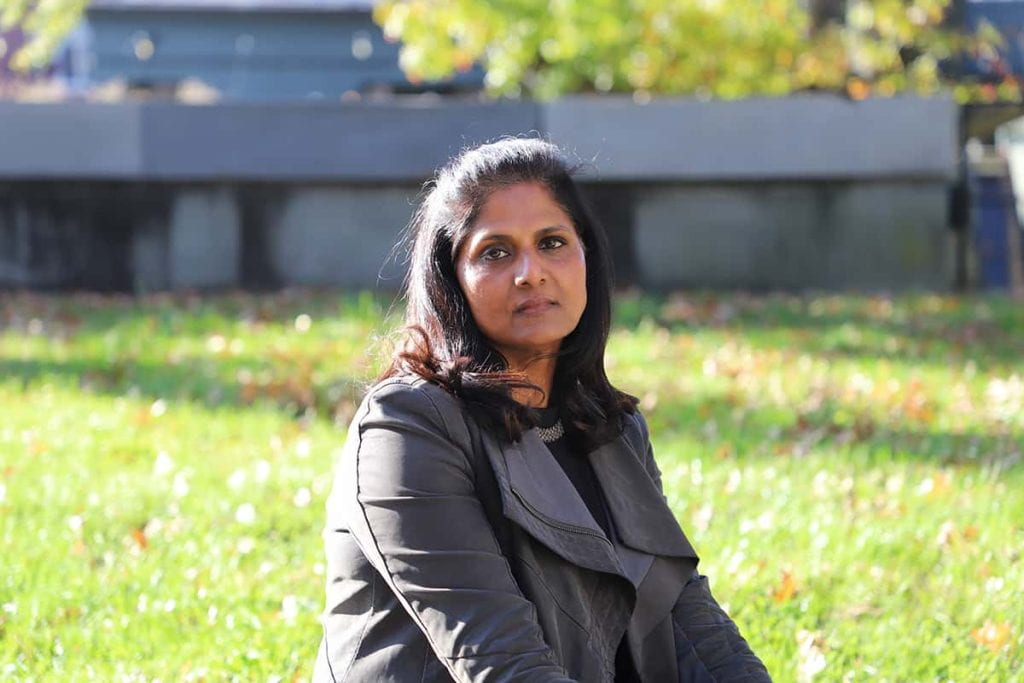 Priya Natarajan is the Joseph S. and Sophia S. Fruton Professor of Astronomy and Professor of Physics at Yale University, as well as the Chair of Astronomy and of the Women Faculty Forum. Dr. Natarajan is a theoretical astrophysicist interested in cosmology, gravitational lensing and black hole physics. She is noted for her work probing the nature of dark matter and dark energy, using gravitational lensing, and for developing models that describe the assembly and growth histories of black holes in the universe. She is also the author of the critically acclaimed book Mapping the Heavens: The Radical Scientific Ideas That Reveal the Cosmos (2016). She was awarded the Isaac Newton Fellowship to pursue graduate studies in astrophysics at the Institute of Astronomy, at the University of Cambridge, U.K. where she received her PhD. Dr. Natarajan’s research work and original contributions to astrophysics have been recognized with many awards and honors, including the Emeline Conland Bigelow Fellowship at the Radcliffe Institute for Advanced Study at Harvard University and election as a fellow of the American Academy of Arts and Sciences. She has served as Chair and Member of the National Astronomy and Astrophysics Advisory Committee and is past Chair and Member of the Executive Committee of the Division of Astrophysics of the American Physical Society.
Priya Natarajan is the Joseph S. and Sophia S. Fruton Professor of Astronomy and Professor of Physics at Yale University, as well as the Chair of Astronomy and of the Women Faculty Forum. Dr. Natarajan is a theoretical astrophysicist interested in cosmology, gravitational lensing and black hole physics. She is noted for her work probing the nature of dark matter and dark energy, using gravitational lensing, and for developing models that describe the assembly and growth histories of black holes in the universe. She is also the author of the critically acclaimed book Mapping the Heavens: The Radical Scientific Ideas That Reveal the Cosmos (2016). She was awarded the Isaac Newton Fellowship to pursue graduate studies in astrophysics at the Institute of Astronomy, at the University of Cambridge, U.K. where she received her PhD. Dr. Natarajan’s research work and original contributions to astrophysics have been recognized with many awards and honors, including the Emeline Conland Bigelow Fellowship at the Radcliffe Institute for Advanced Study at Harvard University and election as a fellow of the American Academy of Arts and Sciences. She has served as Chair and Member of the National Astronomy and Astrophysics Advisory Committee and is past Chair and Member of the Executive Committee of the Division of Astrophysics of the American Physical Society.Prof. Emily Rice (CUNY)
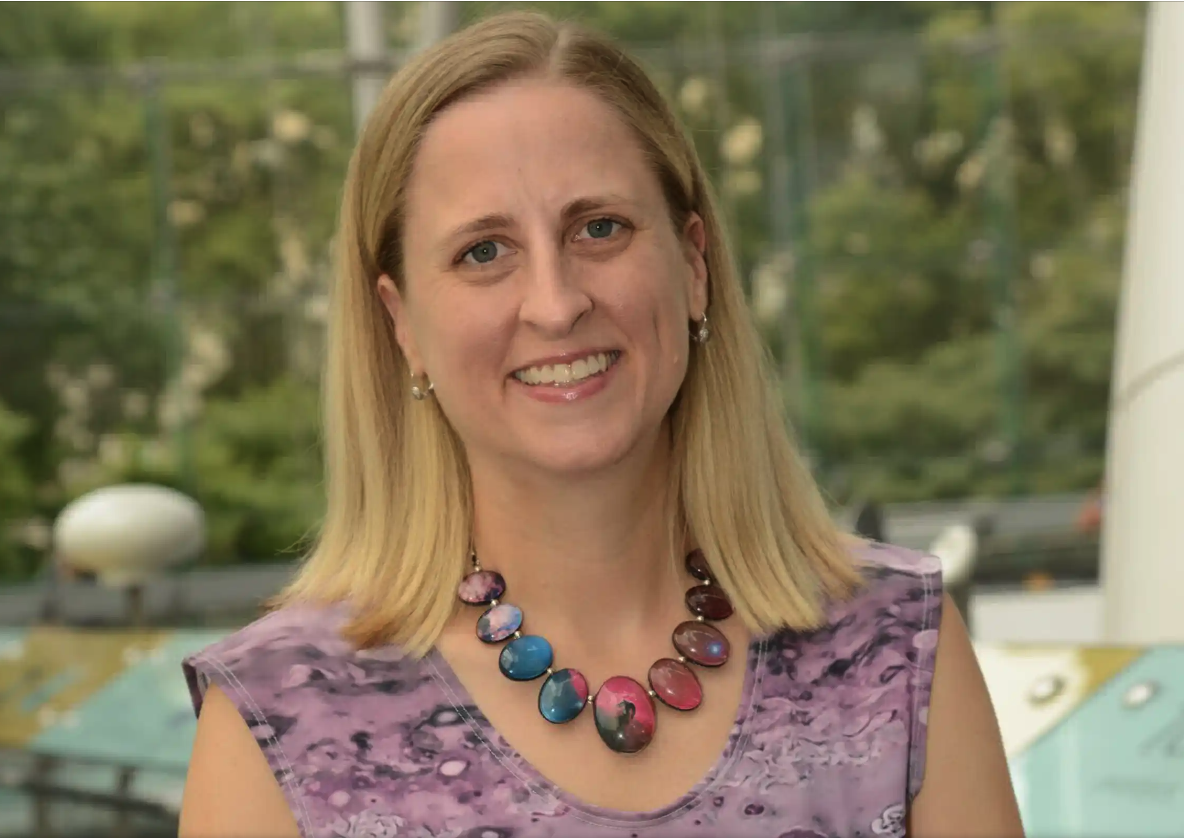
Emily Rice is Associate Professor of Astrophysics at at Macaulay Honors College of the City University of New York (CUNY), faculty in the Physics Ph.D. Program at the CUNY Graduate Center, and a resident research associate in the Department of Astrophysics at the American Museum of Natural History (AMNH). She earned her Ph.D. in Astronomy & Astrophysics at UCLA and Bachelor’s degrees in Physics & Astronomy and German at the University of Pittsburgh. Prior to Macaulay, Dr. Rice was a member of the faculty at the College of Staten Island.
Dr. Rice studies low mass stars, brown dwarfs (sometimes called “failed” stars), and directly-imaged exoplanets by analyzing their spectra and modeling their atmospheres. Her research group, Brown Dwarfs in New York City (BDNYC), co-led by Prof. Kelle Cruz (Hunter College) and Dr. Jackie Faherty (AMNH) has received funding from NASA and the National Science Foundation. Dr. Rice is a co-author of over 40 refereed publications and an introductory astronomy lab manual.
Dr. Rice frequently gives public presentations about space and science, including at the Hayden Planetarium at AMNH, and makes media appearances, coordinates Astronomy on Tap events at social venues around the world, shares astronomy-inspired fashion on the blog STARtorialist, and occasionally produces science parody videos.
Dr. Saipriya (“Priya”) Menon
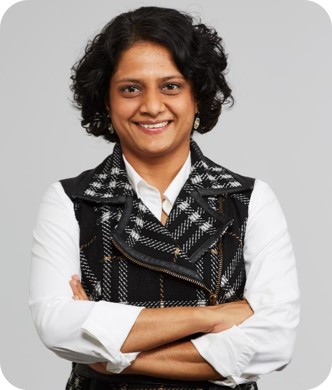
Saipriya (“Priya”) Menon obtained her Ph.D. from the University of Connecticut in 2002 under the guidance of Prof. George Gibson. After graduation, she pursued a non-traditional path, getting an M.B.A. (also from UConn) and entering the corporate world. She has held roles in strategic planning, marketing and product management at Carrier Corp., Otis Elevator Company, and is currently the Global Director of Strategic Marketing and Innovation at a division of Illinois Tool Works (ITW).
Dr. Zhanna Rodnova (Thorlabs)
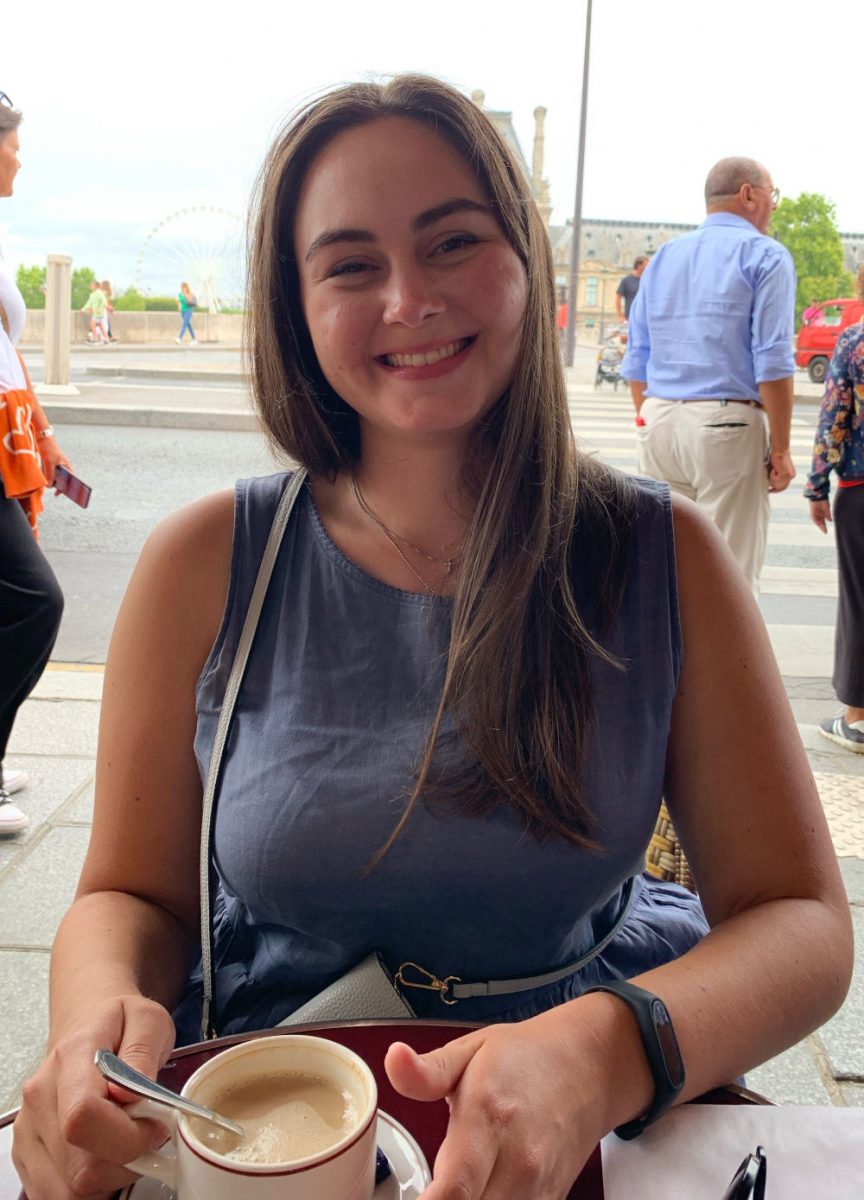
Zhanna Rodnova is a Science Writer at Thorlabs with more than 10 years of experience in optics and photonics. She holds a BS in Laser Technology and an MS and a PhD in Physics. Since earning her PhD from the University of Connecticut, she has been working in the Technical Marketing department at Thorlabs. Her current role allows her to apply the broad range of technical knowledge obtained during her graduate studies to support the introduction of new products to the vast Thorlabs product portfolio.
Sadhana Suresh
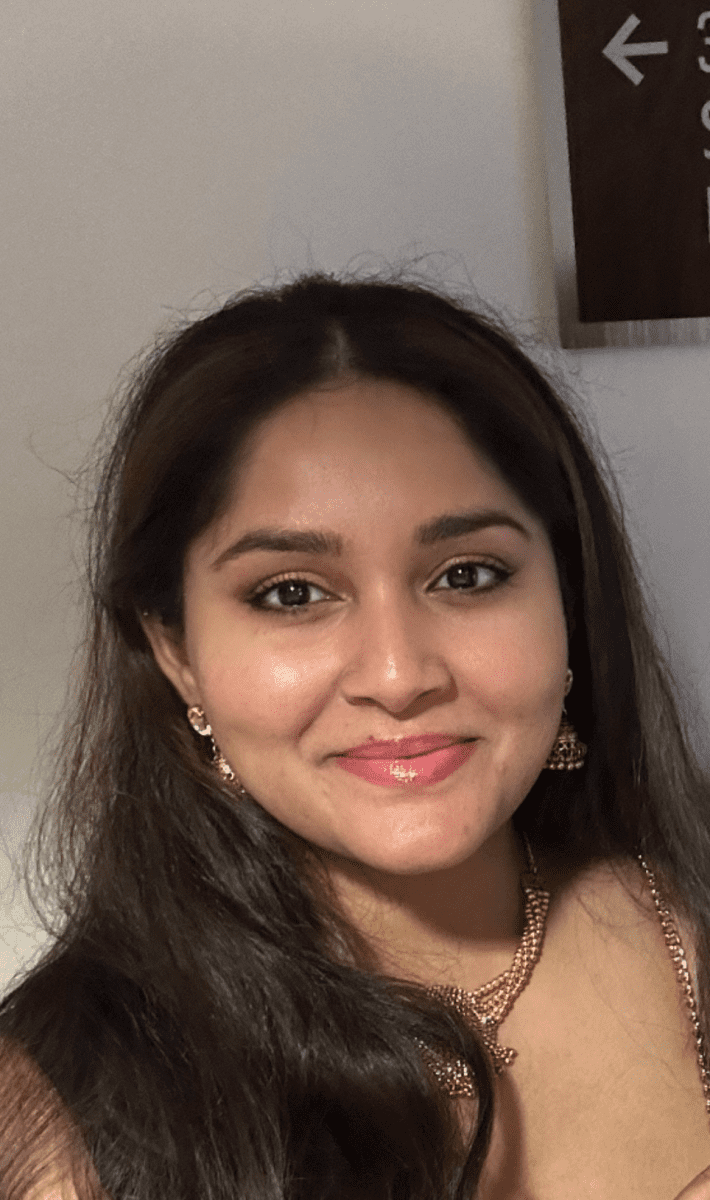
Sadhana graduated from UConn with a bachelors in physics and went to UChicago for a master’s in the Physical Sciences. After graduating, she worked as an Assistant Physicist at Mevion Medical Systems and I have been there ever since. She is currently an Engineer and Deputy Radiation Safety Officer. She does a lot of work on neutron measurements and shielding analysis.
Dr. Lori McCabe
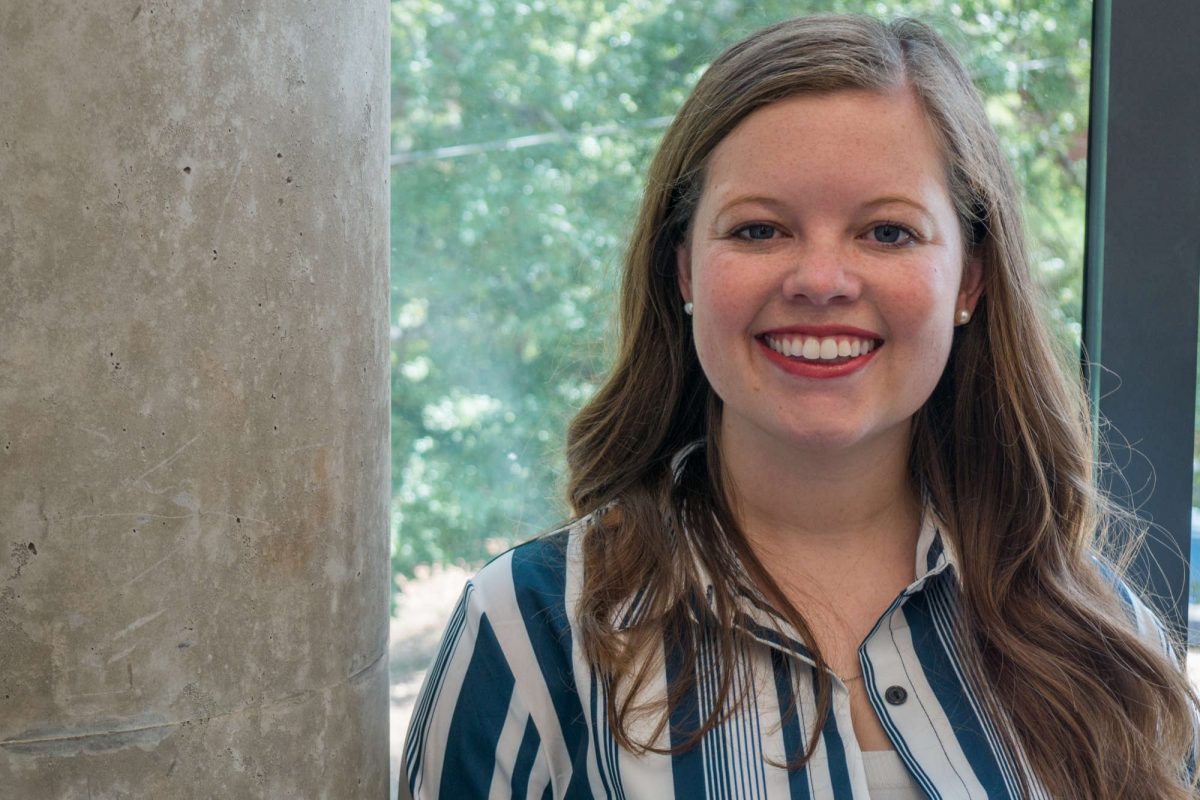
Lori McCabe (she/her) is a postdoctoral researcher at Mount Holyoke College in Dr. Kerstin Nordstrom’s lab. Her primary research as a postdoc is the interaction of granular particles in a quasi-2D grain silo using photoelastic particles. Lori received her Ph.D. in physics from Auburn University in 2022 under the supervision of Dr. Edward Thomas, where she researched the charged particle interactions in dusty plasmas using an apparatus on the International Space Station, with direct comparisons of microgravity and ground-based experiments. Previously, Lori also researched dusty plasma confinements as an undergraduate with Dr. Lorin Matthews at Baylor University.
Prof. Amy Howell
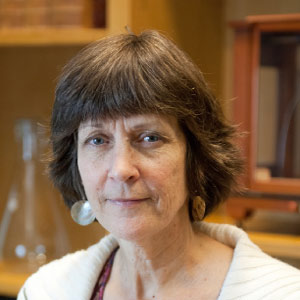
Amy Howell is a professor at UConn. She is a member of the organizing committee of the Women in Math, Science, and Engineering (WiMSE) at UConn. Amy’s research expertise is in new synthetic methodology; preparation and exploitation of 2 alkylidene oxetanes, oxospirohexanes and dioxaspirohexanes; metal mediated approaches to the rapid assembly of diverse β-lactones as tools for proteomic profiling; synthesis of glycosphingolipids for examination of their role in immunomodulation.
Amy Courchesne
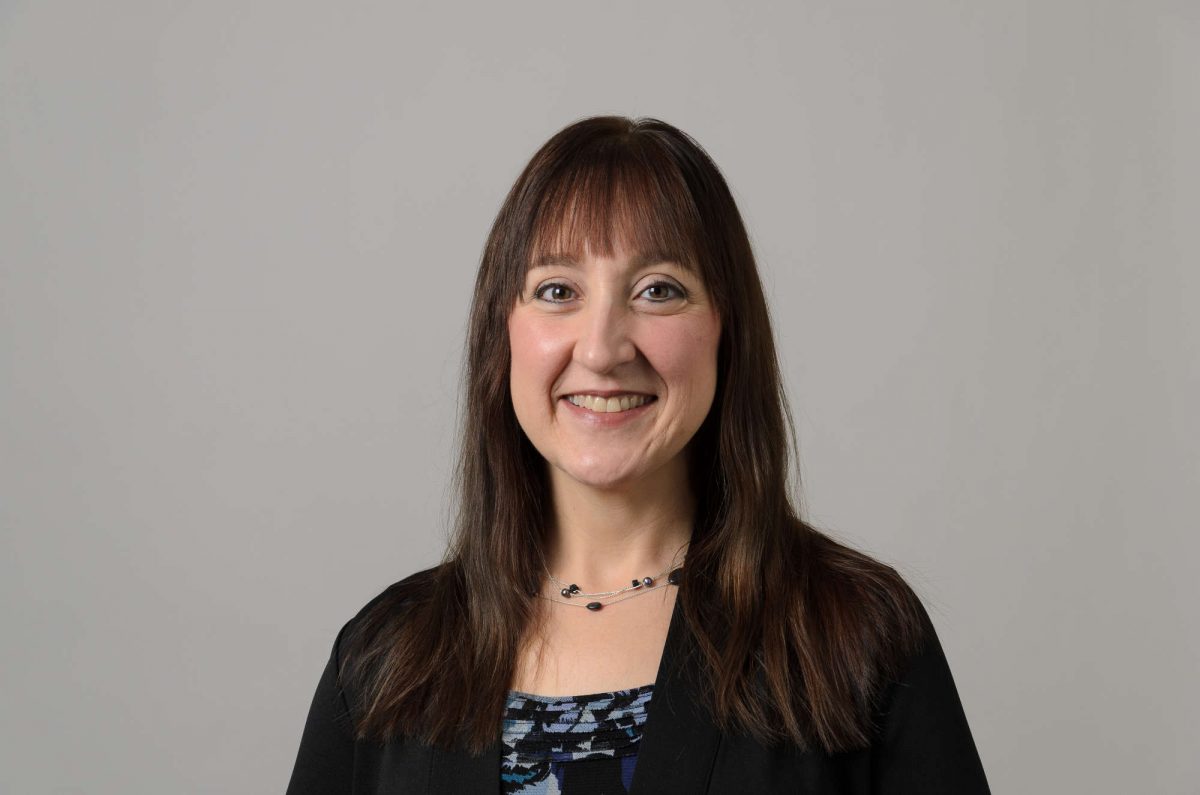
Amy Courchesne is the Environmental Health & Safety (EHS) Radiation Safety Manager for the radioactive materials, analytical x-ray, and laser safety programs at the University of Connecticut Storrs and regional campuses. Her career in radiation protection began in 1996. She started at UConn in 1998 as a Radiation Safety Specialist and has been the Radiation Safety Manager since 2012. She is also the Radiation Safety Officer (RSO) for UConn’s Nuclear Regulatory Commission (NRC) radioactive materials license. She has a BS degree in Physics – Radiological Health Physics Option from UMass Lowell followed by earning an AS degree in Nuclear Engineering Technology from Three Rivers Community College in Norwich, CT as a full scholarship recipient from Northeast Utilities Millstone Power Station (now Dominion). She also has an MSW degree – Community Organizing Concentration from UConn.
Aislinn Daniels
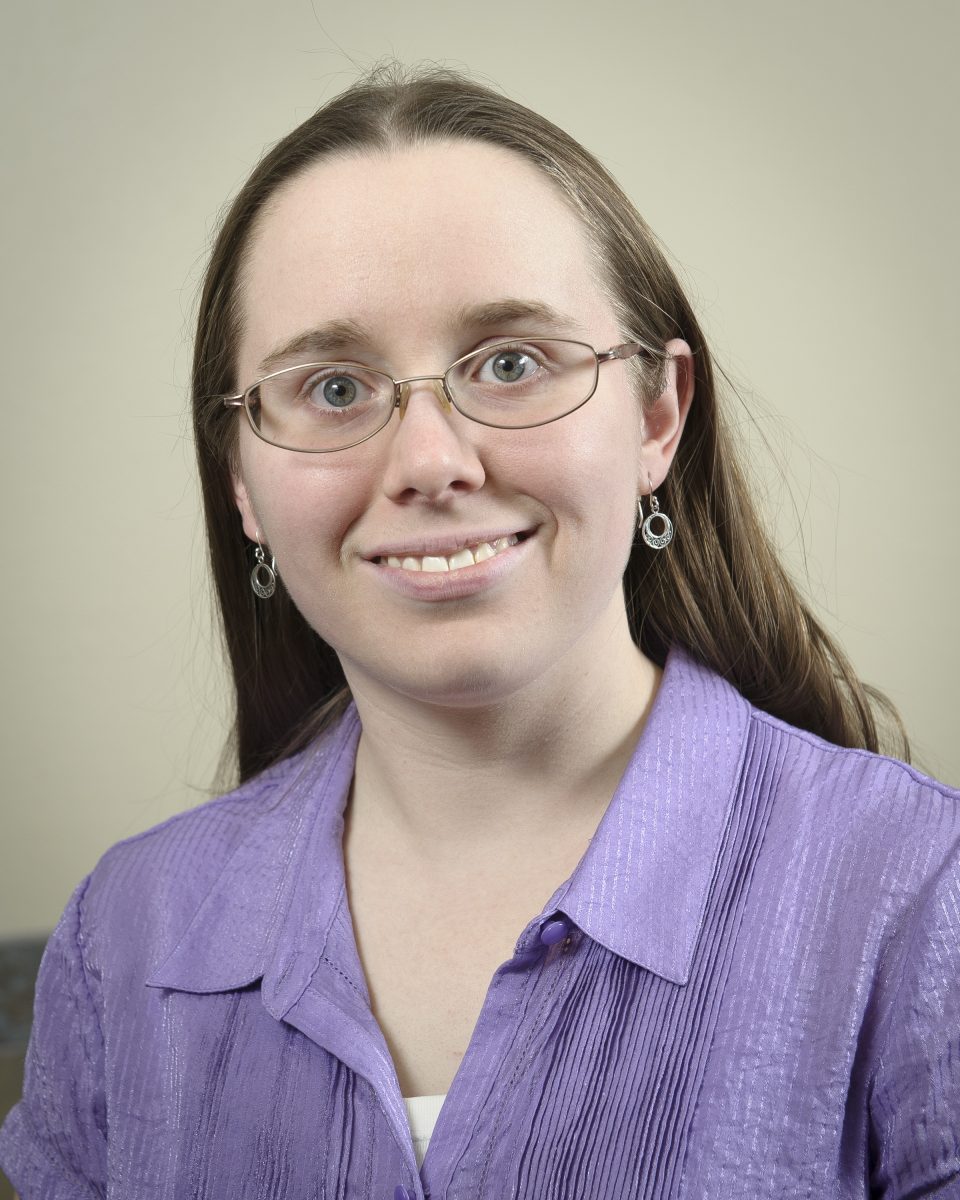
Aislinn Daniels is a laboratory technician for the Undergraduate Physics Teaching Labs at the University of Connecticut. In this role she assists in the operation of the teaching labs for the introductory physics courses. She received a Bachelor of Arts in Physics at Earlham College and a Master of Science in Physics at Montana State University. During her graduate studies she researched applications of optical spatial-spectral materials. She was a member of the Optics and Photonics Society at Montana State University as well as the Women + in Physics group in the Montana State University Physics Department. Through these groups she participated in STEM outreach and continues it with UConn faculty and staff.
Dr. Gabriela Ilie
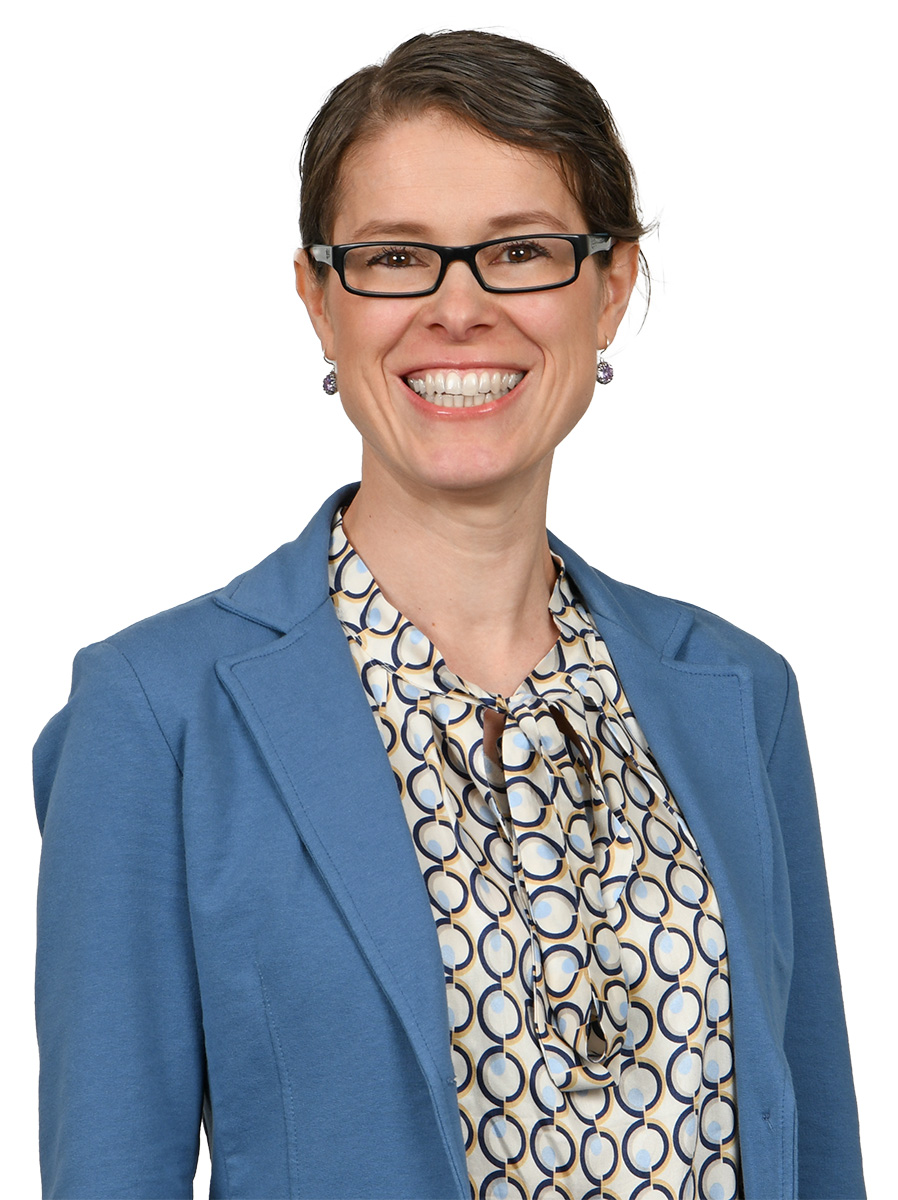
Dr. Gabriela Ilie is a physicist which serves as the Product Line Manager for Specialty Detectors at Mirion Technologies. Her work focuses on developing custom high-purity germanium (HPGe) detector solutions for complex and specialized applications. She joined Mirion (formerly Canberra Industries) in 2012 as a physicist, contributing to various projects through physics support, product validation, and testing. Gabriela holds a Ph.D. in Experimental Nuclear Physics from the University of Cologne, Germany. Prior to joining Mirion, she was a Postdoctoral Researcher at Yale University, where she maintained and utilized a large array of HPGe Clover detectors for nuclear physics experiments. Passionate about education, Gabriela collaborates with universities to provide tools and resources that help teach the next generation of scientists and engineers. In recent years, she has also actively promoted new technologies to help researchers identify the most suitable radiation detection and instrumentation solutions for their needs.
Bryana Kilpatrick
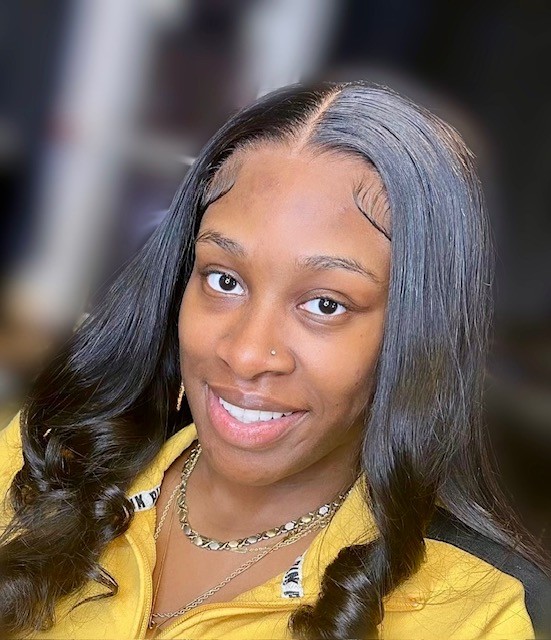
Bryana Kilpatrick is a dedicated PC Tech for the City of New Haven IT Department, where she blends her technical expertise with a passion for public service. She attended Engineering and Science University Magnet School for high school and graduated from the University of Connecticut with a degree in Applied Physics. Since childhood, Bryana has had a genuine love for technology, often breaking apart her toys just to understand how they work before putting them back together. She is also the director of Gforce STEM, a nonprofit organization focused on empowering youth through science, technology, engineering, and mathematics education, Bryana has worked tirelessly to get the program off the ground and is currently on her fourth assignment. There have been many moments when she wanted to give up, but quitting was never an option; she had to discover what she was truly capable of. With a vision to one day establish a dedicated building for Gforce STEM, she aspires to launch her own STEM academy, providing even greater opportunities for youth to explore and develop essential skills for the future.
When she’s not working, Bryana enjoys immersing herself in books and exploring new destinations, seeking inspiration from diverse cultures and experiences. With a clear vision for the future and unwavering perseverance, Bryana continues to chase her dreams, knowing that her journey has just begun. She remains committed to making a meaningful impact in her field and her community, embracing every opportunity to grow, inspire, and leave a lasting legacy.
Nishelli Ahmed

Nishelli I. Ahmed serves as the Program Manager for Mental Health and Health Equity UConn Student Health and Wellness. She has been recruited as a consultant for a variety of universities and community colleges in the US on matters of health equity and systems change. She provides support, motivation, and guidance to students; especially students of the global majority who are marginalized at our institution, consisting of those Black, Brown, Indigenous, and Students of Color.